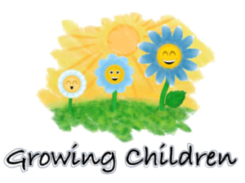Trauma-informed services for
Professionals & Organisations
Trauma-informed services
Professionals
Growing Children provides consulting and training sessions for professionals working with children and families.
SUPERVISION
Professional supervision is provided for social workers, support workers and youth workers.
- Online: Zoom sessions for 1 hour
SUPERVISION
Professional supervision is provided for social workers, support workers and youth workers.
- Online: Zoom sessions for 1 hour
MENTORING
Individual or group mentoring that focuses on the specific challenges faced by the professionals when working with children and families.
- Online: Zoom sessions
MENTORING
Individual or group mentoring that focuses on the specific challenges faced by the professionals when working with children and families.
- Online: Zoom sessions
TRAINING
Trainings can be tailored to the needs of the group and can be done in person or in a zoom session. An initial meeting (via zoom or in person) takes place to discuss the needs of the group.
As an example, the following topics can form part of a training:
- The impact of abuse, neglect and domestic violence on brain organisation and development.
- Trauma results in a heightened stress response system.
- Relationships in early childhood have an ongoing impact throughout life.
- What can we do about trauma-based behaviours in children and how can we support them to heal?
- Why do we need to know more about trauma? The ACES connection.
- What does trauma have to do with the fight, flight or freeze response?
- Early childhood, bonding and attachment.
- Connection with the child should always trump correction and compliance.
- How to create an optimal therapeutic environment?
- How to develop behaviour support plans?
TRAINING
Trainings can be tailored to the needs of the group and can be done in person or in a zoom session. An initial meeting (via zoom or in person) takes place to discuss the needs of the group.
As an example, the following topics can form part of a training:
- The impact of abuse, neglect and domestic violence on brain organisation and development.
- Trauma results in a heightened stress response system.
- Relationships in early childhood have an ongoing impact throughout life.
- What can we do about trauma-based behaviours in children and how can we support them to heal?
- Why do we need to know more about trauma? The ACES connection.
- What does trauma have to do with the fight, flight or freeze response?
- Early childhood, bonding and attachment.
- Connection with the child should always trump correction and compliance.
- How to create an optimal therapeutic environment?
- How to develop behaviour support plans?
Trauma-informed serivces
Organisations
Becoming a trauma-informed organisation may mean some organisational changes which could be challenging if the process is not supported well. We are able to consult with key role players and develop a plan on how to move the organisation towards being more trauma-informed. This would always be done respectfully and sensitively, acknowledging the culture within the organisation, strengths of the organisation and the goals that are unique to the organisation.
The following subjects would be addressed as part of the consultation process:
- What does it mean to be a trauma-informed organisation?
- How does being trauma-informed fit with the cultural context of the organisation?
- Organisational commitment and “buy-in” – from the top down
- Assessing existing trauma-informed strategies and policies
- Implementing strategies
- Organisational culture
- Organisational policies
- Human resources
- Staff wellbeing (focus on the prevention of and response to vicarious trauma)
- Physical environment
- Staff training
- Mentoring and supervision specific to the organisation
- Secondary and Vicarious Trauma
Private & Confidential
